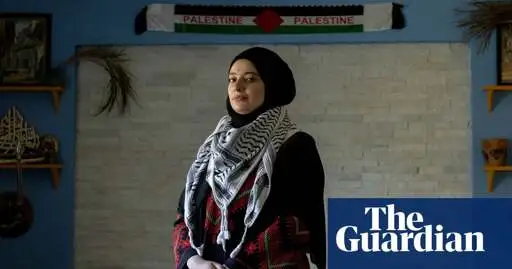Adolf Eichmann was a Nazi who organized trains to the deaths camps. People with desk jobs are non-combatants but that doesn't absolve them from actively contributing to a genocide.
https://www.youtube.com/watch?v=DcdufLc3QSA
these other IDF soldiers that the woman was forced to work with
At least two professors at US universities have faced consequences in recent months after publicly expressing concern about former IDF soldiers on campus. The Columbia University law professor Katherine Franke said she was forced out of the school in January after bringing up the issue of Israeli students “right out of their military service … [who have] been known to harass Palestinian and other students on our campus”. She had also been speaking on Democracy Now!
Dr Rupa Marya, a professor of medicine and a physician, was banned from campus at the University of California, San Francisco, for posting on X about the presence of former IDF soldiers at medical schools specifically: “Med students at UCSF are concerned that a first year student from Israel is in their class. They’re asking if he participated in the genocide of Palestinians in the IDF before matriculating.”
the details of how the university forced her to work with these soldiers. Was she forces to deploy with them?
No.
Did she have to do research with them?
The school continued to employee the professor to her medical school. Medical students work with professors and other students. Her objection is to be put in a situation where she could have to work with him or anyone else who was part of the IDF to meet requirements to get her degree.
In response to her interview, which was protected speech under school policy, the medical school backed up the professor and not her. So yes, she could end up working with IDF soldiers at her medical school, conducting research even, if she wants to finish her degree.
Mohammad’s remarks on the program drew complaints from the professor – who she did not name – and a dean, who has since left Emory. The professor told the medical school he didn’t feel safe, as Mohammad’s interview could expose him and his family to harassment. He asked medical school administrators to investigate her for violating the school’s code of conduct.
Later that month, the open expression committee released a report of its own: according to its independent investigation, the content of Mohammad’s interview was protected by Emory’s policy on free expression. In fact, the committee said, the school of medicine had violated Emory’s policy on open expression by conducting the investigation in the way it did.
Nemenman wrote in the report that, by ignoring the committee, the school of medicine “violated not just the Policy, but, ironically, also the ‘principles of professionalism and mutual respect’, which they had aimed to enforce with this Conduct Code investigation”.
Was she threatened somehow?
Caught between these two conflicting interpretations, Mohammad faced her hearing on 12 November. The professor and the dean who had accused her, together with a faculty adviser of the professor, “testified for my expulsion”, she said. “They wanted me to never be able to practice medicine … [and] one was spitting across the table, his face red, yelling a lot,” she recalled. They demanded she provide evidence to support her claims about the professor. At one point, the adviser screamed: “Who are you to decide what’s a genocide?”
Mohammad said she felt outmatched and that attempts to argue her case fell on deaf ears. She described the hearing as “one of the most dehumanizing two hours of my life”.
As Mohammad’s PhD adviser, the sociology professor Karida L Brown, was allowed to accompany her in the hearing. Brown, whose research centers on race and racism, echoed Mohammad’s description. It was “like a Jim Crow court”, she said. “It never felt fair, from the beginning,” she said, citing the school of medicine’s refusal to engage the open expression committee or consider its report.
how she got suspended for refusing the above
Seven days after the hearing, Mohammad was informed that she had been suspended from the medical school for one academic year, and would be on probation from the time she returned until she graduated. Her appeal of the suspension was denied.
Your argument started off with an accusation that people didn't read the article, but it seems that your argument wasn't informed by a reading of the article.

